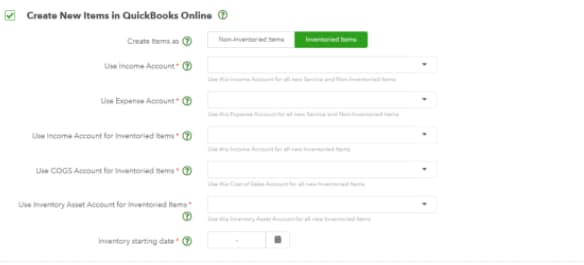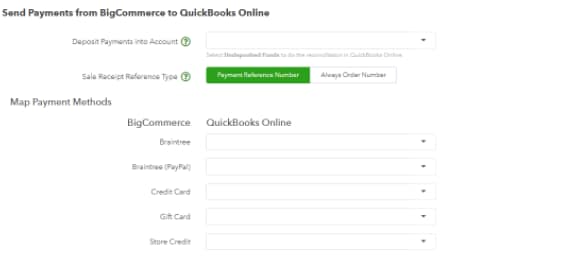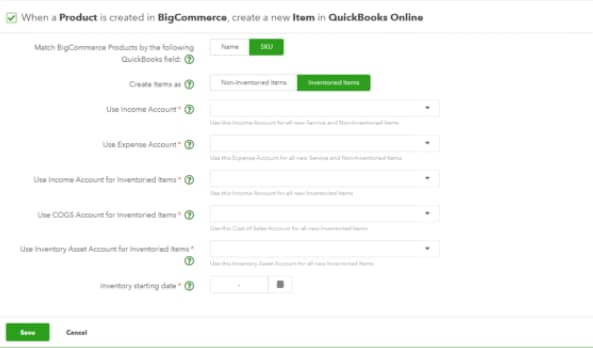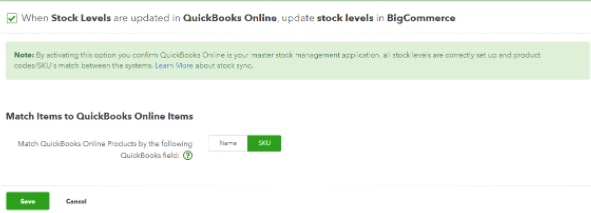Integrate BigCommerce and QuickBooks Online using OneSaas
by Intuit•1• Updated a day ago
Learn how to integrate BigCommerce to QuickBooks Online.
With QuickBooks Connector (One Saas), you're able to set up your complete integration within minutes using our simple setup process. Below is a step by step walkthrough, highlighting some useful key points throughout the process.
Connect
Begin here by connecting the systems you're looking to integrate. You'll find guides on how to connect every system. For this example, we'll be connecting Bigcommerce and QuickBooks Online. Select Configure to move forward.
Configure
The configuration process below will present you with various options detailing exactly how you want your BigCommerce-QuickBooks Online integration to work. You'll need to have some basic accounting knowledge to make sure that the integration settings are tailored to your business and accounting practices.
If you have any questions, you can reach out to our Support team at any time.
- You will be required to set up your synchronisation options before you can start configuring your workflows. You'll need to set up the following:
- Account timezone
- Integrations starting date
- Email sync report options

- You'll be presented with a list of main workflows. These are optional, so make sure to read each option carefully. Generally, our sync will allow the following:
- Sales from BigCommerce to be sent into QuickBooks Online.
- Products from BigCommerce to be sent into QuickBooks Online.
- If you have inventory turned on in QuickBooks Online, QuickBooks Connector can read this information and update BigCommerce.
Sync
Your account is now ready to sync your data across your apps. When auto-sync is on, your account should sync every hour, but you can trigger a manual sync at any time. Just select Sync Now on the Synchronisation Options on top of your Manage tab.
Once you have agreed to the QuickBooks Connector user terms and conditions, you can turn on the automated hourly sync.






